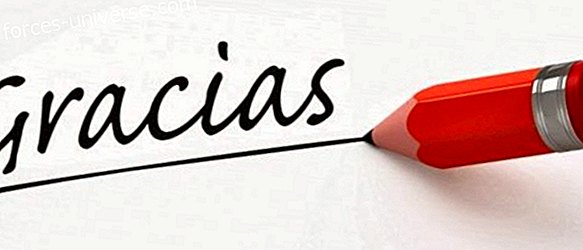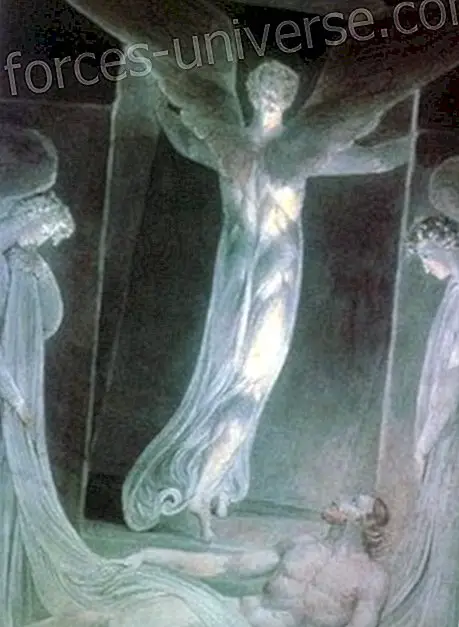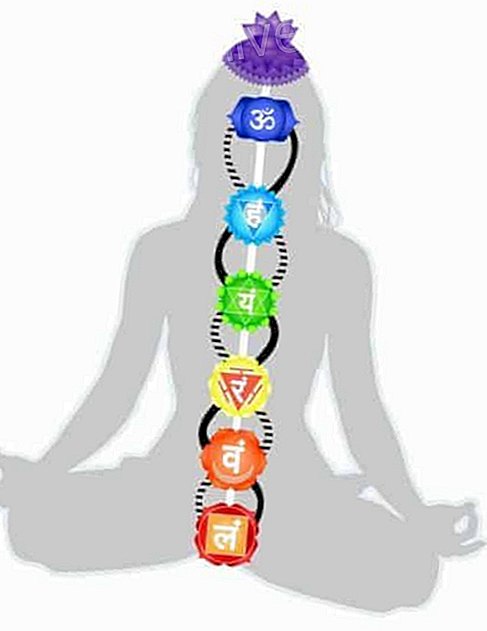
Karma does not imply punishment or fatality. In fact, we are enjoying or suffering from our actions of the past, whether from this or another life. All thought produces effects that fall upon us, either as blessings, as blows or as losses, depending on the causal motive of the original thought.
Classically, karma has been considered with a fatalistic view. It has been seen as something inexorable, unavoidable, that man should accept with resignation. However, as we acquire a new consciousness, we can understand karma in a totally different way.
Now we can see karma as an opportunity for learning and not punishment. It is necessary to return to the origins of this word to understand its true dimension.
The word karma is of Sanskrit origin and is actually pronounced karman and is composed of two syllables: kar and man. The syllable man means thinker and is the origin of the English word man for man. The syllable kar is the root of the verb to do and, by extension, means action, activity. Where karman means, then, the action, the activity of the thinker. And the fundamental and characteristic activity of the thinker is to think.
The action of the thinker is to think, and the result is thoughts. Now, every thought is a force, an energy that is set in motion. From the principle of action and reaction, we know that the action of a force generates another of the same intensity and in the opposite direction.
Action and reaction
And so we come to the basic and fundamental concept of karma:
Every thought or action generated by the man-thinker returns to himself.
Like a boomerang, the forces that we ourselves set in motion, whether with thought or with our actions, sooner or later return to ourselves. Here there is no punishment, here there is no fatality. In fact, we are enjoying or suffering from our past actions, whether from this or another life. All thought produces effects that fall upon us, either as blessings, as blows or as losses, depending on the causal motive of the original thought. As we begin to understand the things that happen to us, as coming from ourselves, accepting the responsibility that comes to us at their origin, we begin to have greater control over our destiny. If we continue to believe that things simply happen to us by chance or bad luck; If we continue to see others as the cause of our misfortunes, karma will continue to act against us. Accepting the possibility that, at some point in the past, I was the generator of what is happening to me, causes the force to balance and stop in its actions.
Karma vs. Wisdom
Great teachers teach that wisdom clears karma. Karma continues to act as long as the same attitude is repeated, without thinking, without waking up. The moment I accept my responsibility, I begin to own my karma. If I am living in a difficult and painful situation, if in pain I can ask myself: what am I trying to learn from this? Or what have I done before to be going through this situation? If I understand what I am going through this experience, from there, my life will change.
Actually, from the karmic point of view, what happens is not important, it is anecdotal. The essential thing is how we react to what happens to us. That is what indicates the level of consciousness reached. By accepting responsibility for my past actions, I begin to generate a different karma, I begin to manage my destiny more freely.
Here it is convenient to introduce a new concept: the idea of repair or rectification of actions.
Suffering Repair
There is no punishment. The punishment does not benefit anyone. God, or the Creative Energy, does not benefit at all with our pain and suffering. What is expected of us is that we rectify or repair our past actions. If we ever cause any pain or harm to someone, it is not necessary to go through the same. Being mistreated will not erase the pain to the person who caused it. But what we can do is repair the result of our action. If we have suffered, we can repair that suffering by countering it with an attitude of service, helping or serving those we have harmed. If a person was a criminal in another life and killed several individuals, how many times would he have to be killed to pay off his karmic debt? I would need many useless lives for it. However, you can live a dignified and profitable life if you agree to perform service actions in favor of those you killed in another life. Suffering and pain appear when we refuse to accept our responsibility and help those whom we have harmed in a previous life. It is there, then, when the forces of karma go into action and push us into situations similar to those committed by ourselves, so that we experience pain in our own flesh and thus not repeat it again with our fellow men. Everything is learning. We experience situations as punishment when we refuse to learn. Then pain and suffering appear.
I remember that in his visit to our country, His Holiness the XIV Dalai Lama, said in one of his talks: "The purpose of human life is happiness and joy." And so it is. Actually we can be happy, suffering is not mandatory. If we are not happy it is because we ourselves, with our actions, with our stubbornness, we take away the possibility of being so.
Edgar Cayce said that the soul always has an alternative: the Law of Grace. You can free yourself from accumulated debts, generously dedicating yourself to doing good to those who are even more miserable.
Karma and Kabbalah
We also find the concept of reparation in Hebrew Kabbalah. In Hebrew there is a term equivalent to karma: tikun. Tikun is the work of correction that an incarnate soul must do about its past actions. Each one comes to physical life with a certain tikun. Each one comes to perform their work of correcting past actions. Sometimes, this work is usually a bit heavy, but we also have around us beings that accompany us and help us in this correction work. Our parents, grandparents, teacher friends or couple are there to help us and we are to help them; in this work of correcting our past mistakes. So each one is fulfilling his tikun or karma, as preferred.
Correct, repair the effect of our past actions. That is what it is about. There is no punishment, there is no one up there pointing the finger at us. All that is asked of us is that we correct our mistakes, that we repair the pain or offense caused to a fellow man. We are as responsible for our suffering as for our happiness. If we agree to perform service tasks on behalf of those we have hurt, we can be happy. If, on the contrary, by pride, by pride, we refuse this task, we will have no choice but to suffer, because our offenders yesterday will want to collect their debt today. And they don't do it for evil. It is simply the reaction to the force that we ourselves set in motion with our primitive action. This is how karma works. It is a concatenation of causes and effects. If the offense is answered with the offense, a major offense will occur, and so on, until one of the contestants reacts, wakes up, becomes aware, apologizes and forgives. At that precise moment the wheel of karma stops. That is why Jesus taught: "If you get slapped, turn the other cheek." Because reacting to the offense means entering the wheel of karma with all its painful consequences. And at this moment, another coincidence of Kabbalah comes to mind, because in Hebrew, the corresponding term for reincarnation is guilgul neshamot, which means wheels of a soul, and is nothing other than the wheel of karma of the Hindus .
"The prince of today is the beggar of tomorrow, and the beggar of today will be the prince of tomorrow." They are the comings and goings of a soul, until reaching the understanding that allows him to stop the ceaseless turn of the wheel and get out of it. .
I want to share with you my personal experience in this regard. I understood this after several years of working with past life therapy and after having gone through the regression experience myself.






